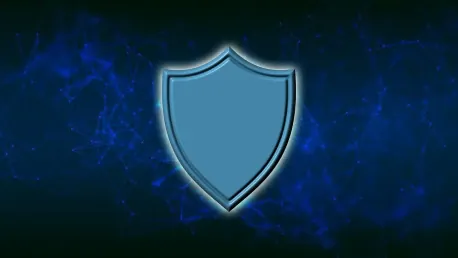Cybersecurity has become a critical issue for organizations worldwide, with the recent data theft incident involving Deloitte underscoring the relentless and evolving nature of cyber threats. As hackers grow more sophisticated, companies must continuously adapt and improve their security measures to stay ahead. The question arises: Are the current cybersecurity protocols sufficient in thwarting these persistent threats, or do organizations need to re-evaluate their security frameworks to address inherent vulnerabilities?
The Scope of the Data Theft Incident
Recently, a hacker known as IntelBroker announced the theft of data from an Apache Solr server allegedly associated with Deloitte, highlighting a major and concerning cybersecurity lapse. What makes this breach particularly alarming is the simplicity of the exploit; the server was exposed on the internet and accessible using default credentials, allowing the hacker easy access to sensitive information, including email addresses, communications, and internal settings. This basic oversight raises significant concerns about the effectiveness of fundamental security measures.
Deloitte has acknowledged these claims and initiated an investigation into the incident. The firm has stated that no client data or other sensitive information appears compromised in this breach. However, the ease with which the server was breached suggests that even large, security-conscious organizations can be vulnerable to simple yet significant security misconfigurations. This incident serves as a stark reminder that robust security practices are essential, and oversight on basic levels can lead to potentially damaging consequences.
The Role of BreachForums and Public Disclosure
BreachForums, a notorious cybercrime forum, served as the platform for announcing the data breach, bringing an additional layer of complexity to the cybersecurity scenario. This forum has a history of hosting exaggerated or false claims about high-profile attacks, yet it remains a hub for cybercriminals to publicize their exploits and threats. Previous instances involving alleged breaches of data from entities like SpaceX and the White House were later debunked, but they underscore how these platforms blend truth and fiction in their disclosures.
The use of public forums like BreachForums for disclosing breaches complicates cybersecurity efforts by not only notifying affected organizations but also potentially exposing vulnerabilities to other would-be attackers. This tactic forces companies to address their cybersecurity lapses swiftly and transparently, often under public scrutiny. Such disclosures also highlight the need for organizations to maintain robust incident response plans that can quickly mitigate risks and protect sensitive data when vulnerabilities are inevitably exposed.
Persistent Vulnerabilities Across Industries
Despite significant advancements in cybersecurity technologies and practices, persistent vulnerabilities continue to plague various industries, emphasizing the need for continuous vigilance and improvement. The incident with Deloitte’s server exemplifies how misconfigurations, unpatched systems, and the use of default credentials can represent significant risks, even for large corporations that typically invest heavily in their security frameworks.
Industries dealing with Industrial Control Systems (ICS) and critical infrastructure are particularly vulnerable to cyber threats. The interconnected nature of these systems means that a breach in one component can have cascading effects, potentially leading to widespread disruption across essential services. The necessity for stringent security measures in these critical areas cannot be overstated. Ongoing investments in cybersecurity, coupled with regular audits and updates to security protocols, are essential to safeguarding these infrastructures against evolving threats.
Governance and Organizational Responses
In response to the growing magnitude of cyber threats, companies are enhancing their cybersecurity governance structures and introducing more robust oversight mechanisms. Microsoft’s creation of a Cybersecurity Governance Council and the appointment of multiple Deputy CISOs are significant steps towards stronger oversight and risk mitigation. This model ensures that dedicated teams are constantly monitoring and updating security protocols to adapt to emerging threats, providing a comprehensive approach to cybersecurity management.
Deloitte’s quick acknowledgment and investigation into the breach claims are indicative of the proactive stance that many organizations are now adopting in the face of cyber threats. Transparent communication about the impact and measures taken helps in mitigating stakeholder concerns and demonstrating accountability. These actions underscore the importance of incident response readiness and the value of cultivating a culture of cybersecurity awareness and responsiveness within organizations.
Growing Sophistication of Hacker Operations
Hackers are not only focusing on data theft but are increasingly targeting administrative and operational settings within organizations, displaying a growing sophistication in their methods. This trend indicates that cybercriminals are evolving beyond mere data theft to potentially disrupting business operations and exploiting systemic weaknesses, making them even more formidable adversaries.
The announcement on BreachForums and the subsequent scrutiny bring to light the myriad ways hackers are adapting. Such platforms provide them visibility and insights into compromised systems, further complicating the cybersecurity landscape for professionals who must stay ahead of these dynamic threats. This ongoing evolution necessitates a multi-faceted approach to cybersecurity that includes threat intelligence, advanced monitoring, and continuous innovation in defensive strategies.
The Broader Cybersecurity Ecosystem
Cybersecurity is now a paramount concern for organizations globally, highlighted by the recent data breach at Deloitte, showcasing the persistent and dynamic nature of cyber threats. With hackers becoming increasingly skilled, companies must perpetually enhance their security measures to stay one step ahead. This situation raises a critical question: Are the current cybersecurity protocols adequate in defending against these relentless threats, or must organizations reconsider and overhaul their security frameworks to address inherent weaknesses?
In light of constantly evolving cyber threats, organizations must adopt a proactive approach to cybersecurity. This means not just relying on traditional methods but also investing in advanced technologies like artificial intelligence and machine learning, which can predict and identify threats in real time. Additionally, regular security audits, employee training, and a robust incident response plan are essential to fortify defenses. As cyber threats become more sophisticated, companies cannot afford to be complacent. A continuous review and upgrade of cybersecurity strategies is vital to protect sensitive data and maintain trust in an increasingly digital world.









